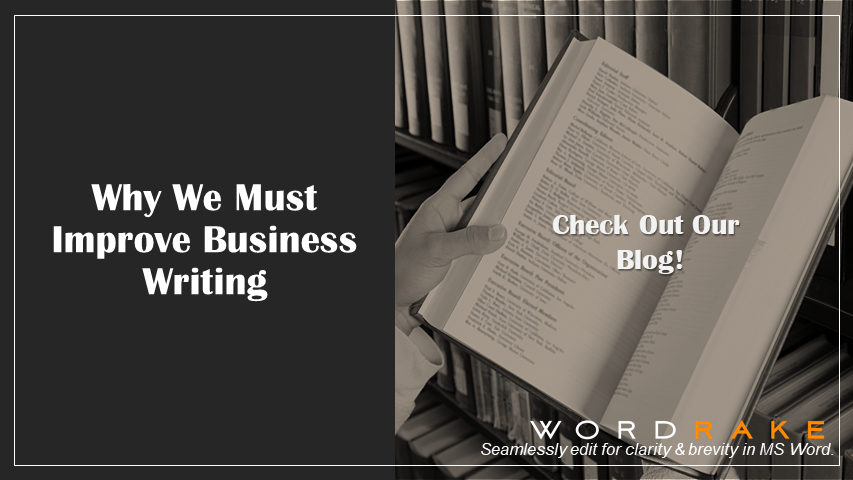When you’re writing for work, it can be tempting to show off. Big words and elaborate details make us feel confident, certain that they make us seem smart and impressive. In reality, overly complex writing can make your work hard to understand, or worse, too much of a bother to read. Author and writing teacher Erin Lebacqz investigates what can go wrong when we write for ego rather than expression, and how to keep our words simple and clear.
Devon had recently been promoted and was excitedly writing his first update to his supervisor. He now supervised a team of eight, and had a lot to tell his boss about everything they’d done this past quarter.
He started chronologically, explaining the accomplishments of each month in the quarter with a couple paragraphs each. He included evidence and examples, and his writing was strong, explanatory, and high-level. He even threw in some million-dollar vocabulary words to send the message that he knew what he was doing in his new position.
He sent his update email off to his supervisor and eagerly awaited her reply. A couple days later, he got it: “Thanks, Devon.”
“That’s it?” Devon thought. He shared his story in a Business Writing class, including the way he felt when he finally heard back from his supervisor. He admitted having felt disappointed that she hadn’t replied with more detail. After everything he’d written—detailed updates and examples, words that showed his education and prowess with language—all she’d had to say was “Thanks”?
It’s About the Reader, Not the Writer
The entire class wanted to stick up for Devon. They felt upset for him: “How could she just say thanks, after all that work you did?” they wanted to know. I was curious too!
Devon himself had the answer, it turned out. We were talking about audience in class that day—how to reach our readers based on who they are, what they need, and what they value. This conversation had given Devon an “aha moment.”
“I think I figured out what I did wrong,” he said at one point.
“Well, just a reminder,” I shared. “There’s no ‘right’ or ‘wrong’ in writing. There’s only ‘right for the situation’ or ‘wrong for the situation’.”
“That’s the problem,” Devon confessed. “I didn’t write it correctly for the situation.
Devon’s boss, he shared, was a “bottom line person.” She wasn’t the type who wanted lots of background, context, and detail in an update. Instead, she wanted the bottom line, the main point—a general update, without all the narrative or details.
One of Devon’s classmates ventured a question: “Well, no offense, but if you knew she was a bottom-line person, why all the paragraphs?”
Devon admitted the truth “In hindsight, I wasn’t writing it for her; I was writing it for me. I was proud of the work my team and I had done.”
Big Words and Long Paragraphs Aren’t Impressive Anymore
Part of Devon’s writing realization was this: The decisions we make about our writing should be based on what works best for the reader—not the writer. Devon’s supervisor preferred shorter writing and wasn’t impressed with his million-dollar vocabulary either.
Most of us grew up thinking others judge us by our writing and so try to look like we know what we’re doing. But are big words, long sentences, and glorious detail what a reader wants?
The short answer? No. We still get judged by our writing, but challenging our readers with complex sentences and vocabulary no longer makes us look good. Instead, writing in a way that could feel “showy” to a reader can risk alienating them—not impressing them.
Simplicity: Making Big Ideas Easier to Read
“But isn’t that dumbing it down?”
Writing teachers get this question a lot when they suggest writing simply. People writing in the workplace often worry that simple writing might not make them look good.
It’s a natural fear: We've been taught our writing represents us—and it does. But do we really sound impressive when we use big words? Do readers really prefer writing that “sounds smart?” Or would they rather learn easily?
Studies show it’s the latter. Most of us—even folks with degrees and lofty positions—actually learn more effectively by reading writing that uses familiar words.
Devon’s supervisor might have loved an email that not only stuck to the bottom line but used easy-to-process language. While Devon might’ve thought saying “My team has contributed their expertise to collaborate on upleveling the application process” sounded smart, it was off-putting instead. Devon’s boss is smart enough to understand it, sure, but does she want to fight through the complex vocab to get to the point inside? Probably not.
An update like “My team worked together to make applying easier” might’ve worked better.
The “Cognitive Load” Issue is Real
Studies on the brain teach us that we can only process so much information at a time. We can only take so much “load” on our cognition when we’re reading and trying to retain information. Savvy writers know this and adjust their writing accordingly.
For example, the sentences below show a comparison in the cognitive load required by a reader:
-
Requires High Cognitive Load: It has come to our attention that your profile is in need of updating on our website; you are required to complete these updates before the close of the quarter.
-
Requires Lower Cognitive Load: Please update your online profile by March 31, 2023.
As we think about our readers, we also want to consider their reading and comprehension levels. Studies show us that around half of our readers—especially if we write to the public or other large groups of people—read at about the sixth grade level. This gives us yet another reason to write simply: we must write to be understood.
Keeping your writing simple and clear is one of WordRake’s primary purposes, and this webinar will help you with just that. You’ll learn strategies to make your writing easy to understand, even while conveying complex ideas. You’ll learn ways to wordsmith your writing and target exactly the level your reader needs.
About Erin Lebacqz
Erin Lebacqz created the High-Value Writing program to help business writers develop more clarity and confidence in their writing. Her book, High-Value Writing: Real Strategies for Real-World Writing, is based on conversations with thousands of writers around the world, and provides down-to-earth strategies and examples. Erin has been teaching writing for 25 years, both in the United States and internationally.




.png)




